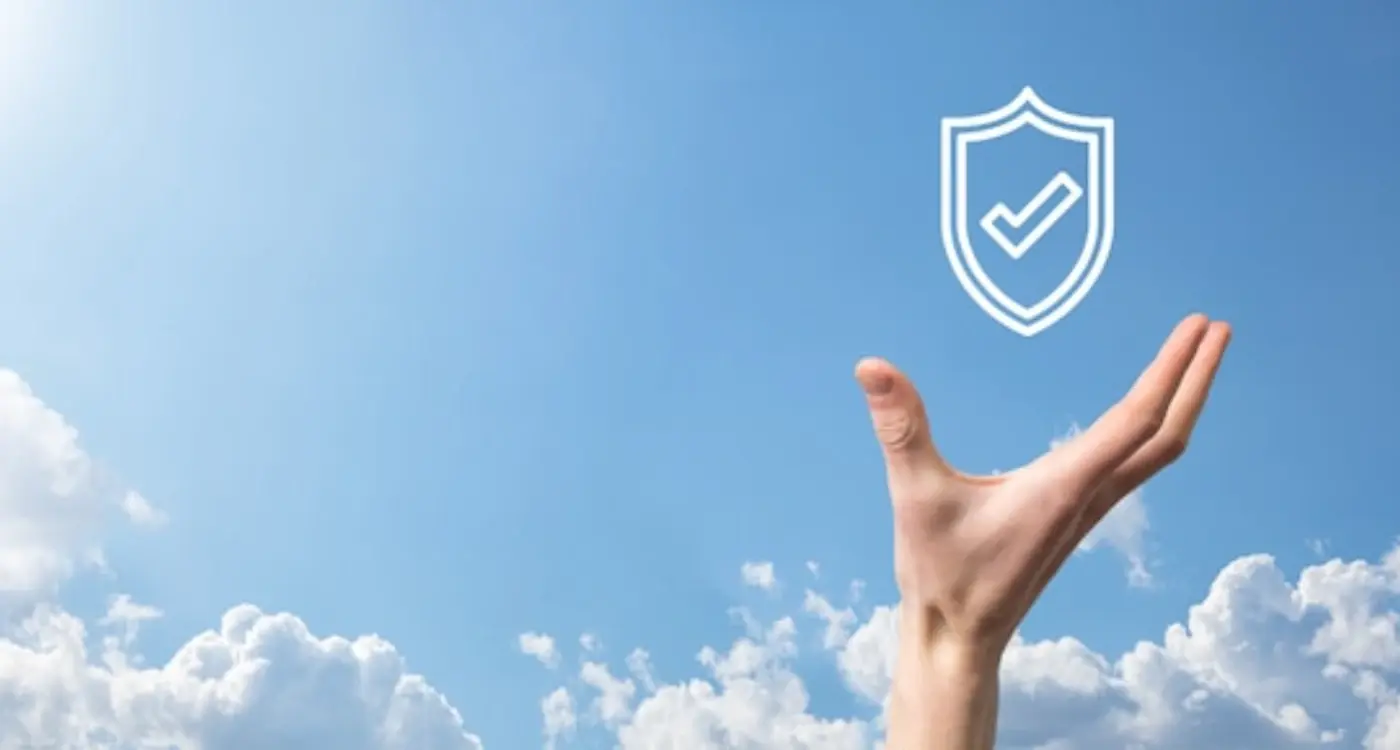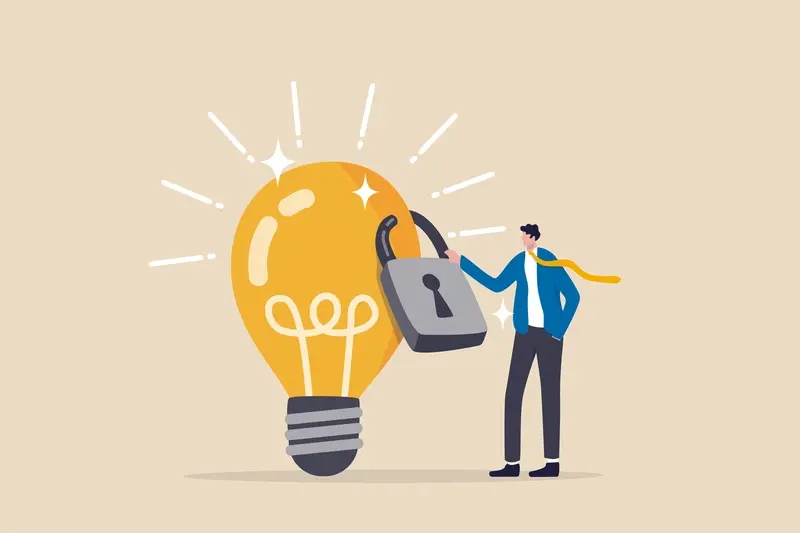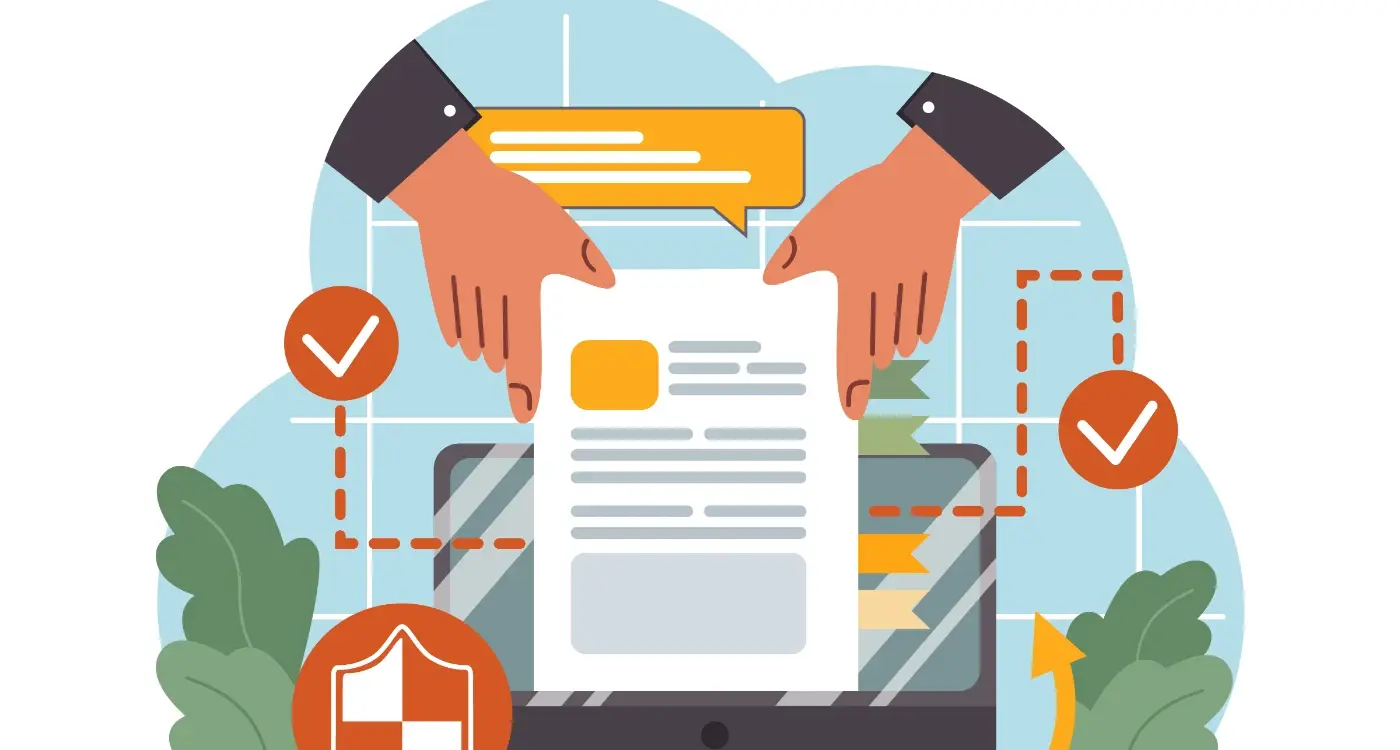Can App Developers Steal You Idea?
We get it, the thought that someone could swipe your brilliant app idea is enough to keep you up at night. Whether you’re a business owner or an aspiring entrepreneur, it’s natural to feel anxious about sharing what's been a secret until now—you’ve spent hours brainstorming, imagining how this app could be a huge hit, the last thing you want is for someone to take it and run. But how worried should you really be?
Trust should be the basis for all our moral training.Robert Baden-Powell
The app development world is intriguing and, yes, potentially lucrative—but rest assured, while it might seem like everyone's out to steal or copy your idea, there are more protective measures and honest developers out there than you might think. Discovering how to recognise and protect yourself against potential risks without letting paranoia take over is a crucial step in the app development journey.
We’re here to give you the ins and outs, leaving you informed and ready to tackle this adventure with confidence!
The Importance Of Confidentiality In App Development
Your app idea is the spark that could ignite serious success or investment so handing it over to developers can feel like being on a tightrope without a safety net. But hey, deep breaths, because confidentiality agreements are here to catch you!
The crux of confidentiality in app development lies in safeguarding the unique elements that make your idea noteworthy. Whether it's the next social media craze or a tool to simplify everyday tasks, protecting your concept from prying eyes is paramount. Think of it like holding onto your secret ingredient in a recipe—sharing it too freely could lead to others cooking up the same dish (or at least one pretty close!).
NDAs (Non-Disclosure Agreements) are they key way in which you can protect your idea. By getting developers to sign an NDA, you're ensuring that the intricacies of your idea remain safe and confidential, only to be disclosed when necessary and only to those people who absolutely need to know about it. Although they aren't foolproof, NDAs at least provide a legal framework that acts as a deterrent to idea stealiong.
Open communication with your developers can also foster a trustworthy relationship so it’s key to set clear boundaries on what can—and cannot—be discussed outside the development bubble. At Glance, we're pros at not only understanding your vision but keeping it under wraps until it's time for the big reveal.
Remember, your confidence in confidentiality is crucial for laying the foundation of mutual trust that lets creativity flourish.
How To Protect Your App Idea From Being Stolen
You've come up with a smashing app idea that could revolutionise the industry, but the reality of the digital world is that not all ideas are safe. You need to be on guard, ready to protect your brainchild, so how do you go about it?
We've talked briefly about NDA's, and these are definitely your first level of protection when dealing with any third party. Next, think about trademarks and copyrights—while NDAs are about confidentiality, these legal protections focus on ownership. A trademark can safeguard your app's name and logo, while copyright protects the actual content.
Let's not forget about patents, although they can be a tricky business. Applying for a patent might be worth considering if your app involves a truly unique technical process or idea— in this case it's worth chatting with a legal expert to see if this road is worth pursuing.
| Method | Pros | Cons |
|---|---|---|
| Patenting | Strong legal protection, exclusive rights | Costly, time-consuming |
| Trademarking | Protects brand, prevents name theft | May seem unnecessary at early stages |
| Non-disclosure Agreements | Legally binding confidentiality | Does not prevent idea theft |
And how about the tech side of things? Security measures should be in place during development. Simple things like ensuring code repositories are private and using two-factor authentication can make a big difference.
Building a trustworthy relationship with your developer is also crucial so choose someone with a sparkling track record. Ask around, check reviews, and maybe even ask for a reference or two. It's essential to feel you've found the right partner for bringing your vision to life.
Ultimately, while safeguarding your app idea might sound daunting, it's all about being prepared and vigilant. You're the owner of your idea, and with the right protections in place, you're setting yourself up for success!
The Role Of Intellectual Property In App Development
When it comes to app development, intellectual property (IP) is critical. It's there to safeguard that brilliant, brainwave-worthy idea you've worked so hard to conceive. However, a lot of business owners find this area a bit complex, puzzling, and often overwhelming.
Think of IP as the friendly shield against anyone wanting to lift your precious idea. It's the bodyguard for your app's name, its unique features, and even its secret sauce. By securing your IP rights, you're basically putting up a "No Trespassing" sign for competitors and idea poachers.
Remember, protecting your intellectual property is more than just a defensive strategy. It's a way to enhance your app's value and appeal to potential investors. Demonstrating that your idea is legally bulletproof not only boosts its commercial credibility but can also be a significant pull factor for the big bucks.
Landing a patent isn't merely about nailing a few documents to the wall. It's also about acknowledging the unique elements in your app and ensuring they're shielded from being replicated. While this process may sound daunting, it provides your app with a remarkable level of protection.
A simple step, like consulting with an IP expert or lawyer, can demystify the process and ensure that every aspect of your app is covered. After all, your idea deserves more than just applause from the sidelines—it demands a high level of security and recognition, paving the way for a successful business venture.
Recognising The Signs Of A Trustworthy Developer
Recognising a trustworthy developer can feel a bit daunting, but fear not, it's not as difficult as it seems. A little effort in the beginning can save heaps of stress and regret down the road. Take a detailed look into their online presence. Check out their portfolio and see if their previous work aligns with the vision you have for your app. If you find yourself marvelling at their past creations, you might have found the right team.
Don't shy away from testimonials; these are golden nuggets of insight into what it's like working with them. Happy previous clients usually mean a positive collaborative experience. Make sure these aren't just glowing reviews but also address any hiccups honestly and how they dealt with those. After all, no project is ever without its bumps!
Exploring Reputable Platforms: Head over to trusted review sites like Clutch to understand what the wider business community says about them. It's like checking out the reviews before choosing a restaurant — you wouldn't want a surprise there either, would you?
- Testimonials and feedback offer honest insights into a developer's reliability and expertise.
- A strong portfolio showcases the developer’s technical skills and creative capabilities.
- Reputable developers often have a long-standing client base and proven track record.
- Trivia ratings and word-of-mouth referrals can highlight the company's reliability.
- Established companies are less likely to vanish with your intellectual property compared to freelancers.
- Experience and establishment in the industry are key indicators of a trustworthy development partner.
Experience and expertise cannot be overemphasised. If they've been around the block for a while and have a robust client base, that's generally a good sign. Walk away if they promise the moon and the stars without the experience to back it up.
Trustworthy developers won’t shy away from signing an NDA. If someone hesitates when you bring this up, consider it a big, red flag. A genuine developer understands the importance of confidentiality as much as you do.
Remember, while this might seem like a thorough investigation, it's all crucial to ensure you get a team that respects you and your idea. Ultimately, it's about building a relationship built on trust and transparency. They'll help your app soar rather than snatching your concept and dashing out the door.
How To Spot A Red Flag In Developer Discussions
When engaging in discussions with potential app developers, it's essential to keep your wits about you. Some issues might signal a bigger problem down the line. Here are a few key warning signs to watch out for:
- Reluctance To Sign An NDA: If a developer hesitates to sign a Non-Disclosure Agreement, it may be a sign that they don't prioritise your idea's confidentiality. This should raise an eyebrow since NDAs are standard practice to shield your concepts from being pinched.
- Lack of Transparency: A developer should be open about their processes, timelines, and costs. If they are unclear or evasive when you ask for details, it might suggest they're hiding something or lack experience.
- No Portfolio Or Testimonials: A reputable developer will want to show off their previous work. If they can't provide examples of finished projects or positive testimonials from past clients, proceed with caution.
- Pushy Sales Tactics: Alarm bells should ring if a developer uses high-pressure sales techniques to get you to commit before you've had time to think things through. A reliable developer will respect your decision-making process.
- Vague Communication: If your developer is not clear or frequently miscommunicates, it could lead to misunderstandings, missed deadlines, or a misaligned vision for your app. Good communication is key to a successful partnership.
Trust is crucial in any business relationship, and your development team should inspire confidence. Watch for these red flags to ensure you're safeguarding your brilliant app idea and choosing the right partner to bring it to life.
Conclusion
So, can app developers really steal your idea? As we've seen, it's not that straightforward. While the fear of idea theft is genuine, there are proactive measures you can take, like Non-Disclosure Agreements (NDAs) and intellectual property rights, to protect your concept. Remember, a good developer values their professional reputation and is interested in building your idea successfully rather than doing you wrong.
Most importantly, it's all about trust and communication. By carefully choosing a reputable development partner who understands the value of your idea, you're safeguarding your business and its innovative future. As you navigate the exciting journey of turning your idea into reality, let the right developers help, and not hinder, that dream. And if you ever feel unsure, remember you're not alone in this. Reach out to fellow entrepreneurs or trusted advisers who can offer guidance and support along the way.
With these insights, you can confidently move forward with peace of mind, knowing you're equipped with the knowledge to protect your vision. Cheers to that next groundbreaking app idea you’re about to unleash on the world!
Share this
Subscribe To Our Learning Centre
You May Also Like
These Related Guides

Which Documents Keep Your App IP Safe During Development?

How Do You Protect Your App Idea When Working With Remote Developers?



